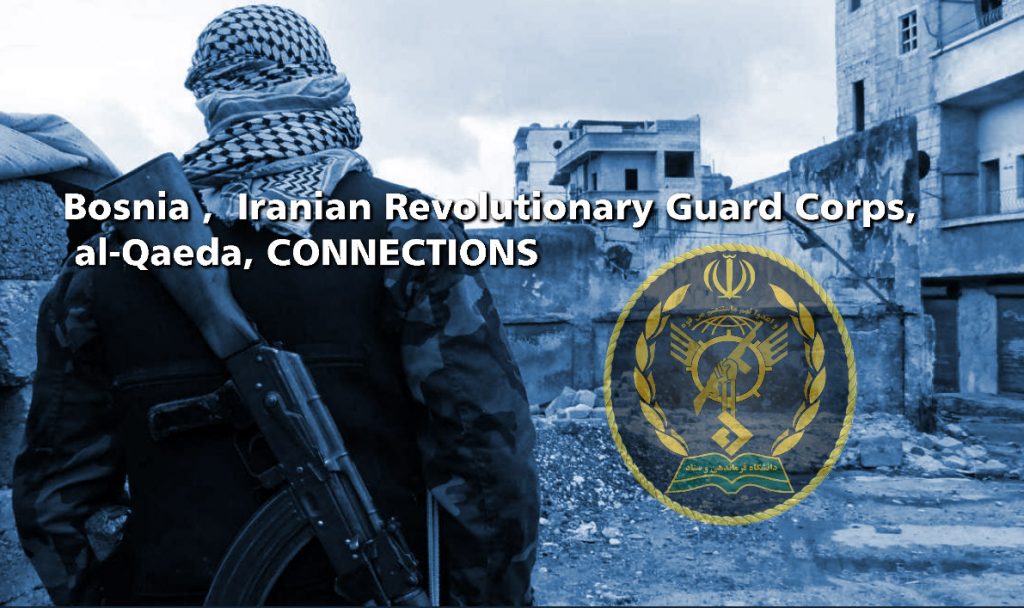
For various reasons some well-intended, some not, his fact has been either unknown or (shall we say) “controversial” in the West in the decades since. It is, therefore, important to note that there have been several recent revelations from in and around the Iranian regime itself that confirm the Islamic Republic’s involvement in the Balkans in the early 1990s.
The clerical regime in Iran established a relationship with Al-Qaeda shortly after its foundation thirty years ago. One of Tehran’s and Al-Qaeda’s first joint projects was in Bosnia during the war (1992-5), where Iran helped to make Al-Qaeda a truly global phenomenon—with a foothold in Europe.
Zawahiri and Iran had a long relationship of mutual admiration back to the 1980s. In Bosnia in the 1990s, Iran supported some of the same networks as al-Qaeda and is even said to have had a close working relationship with Zawahiri through Imad Mughniyeh, Hizballah’s military chief who was a fully commissioned officer (p. 30) of Iran’s Islamic Revolutionary Guard Corps (IRGC). Hizballah’s military trainers were thick on the ground in Bosnia — according to none other than its secretary-general, Hassan Nasrallah, whose statements to this effect, encouraging others to join them, were found (p. 149) among the possessions of an American Hizballah member.
It was Mughniyeh who personally met with Bin Laden in Khartoum around 1992 to seal the agreement Iran had made with al-Qaeda to cooperate in anti-American attacks — an agreement that ultimately led inter alia to Khobar Towers. Mughniyeh trained al-Qaeda operatives in camps in the Bekaa Valley, the 9/11 Commission Report notes (p. 61), and it was Mughniyeh among other Iranian agents who met with Zawahiri and other Sunni jihadists in Bosnia in a series of meetings where they agreed to coordinate support for the SDA government. The final wartime meeting took place in April 1995 in Khartoum. Iran’s “secret deal” with al-Qaeda continues to the present, facilitating al-Qaeda fighters getting to Syria.




